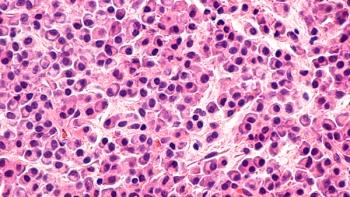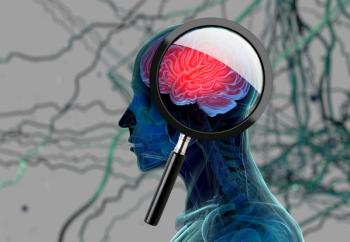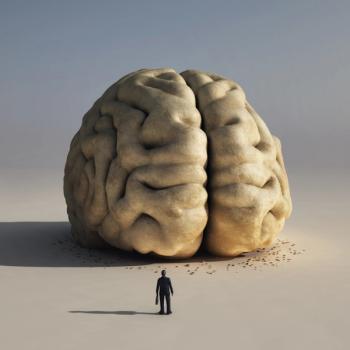
A recent study described the use of multiparameter flow cytometry to detect minimal residual disease, with an 8-color flow cytometric method with a 105 sensitivity, using monoclonal antibodies in dried formulation.

A recent study described the use of multiparameter flow cytometry to detect minimal residual disease, with an 8-color flow cytometric method with a 105 sensitivity, using monoclonal antibodies in dried formulation.

Coverage of our peer-reviewed research and news reporting in the healthcare and mainstream press.

The House Energy and Commerce Committee, as well as the Education and Labor Committee, passed the Lower Drug Costs Now Act; Juul Labs will suspend online sales of several types of flavored e-cigarette pods; a trio of employer groups has formed a new partnership to advocate for policies that address the problem of ever-increasing drug costs.

Sutter Health has agreed to a major class action lawsuit in an antitrust case; California to help middle class income citizens buy health coverage; doctors stress flu shots in the United States amid rough flu season in Australia

The 12 Democratic candidates for president spent a good deal of time at their debate Tuesday night discussing healthcare; a group of state attorneys general tried to convince a US District Court judge to give them more time to create a settlement in their opioid lawsuits but failed; Alexion Pharmaceuticals agreed to buy small biotech Achillion Pharmaceuticals in a deal initially valued at $930 million.

Former FDA commissioner Scott Gottlieb called for the ban of THC-based vaping products; machine learning tested to prevent drug shortages; study finds link between air pollution and miscarriages in China.

Federal judges denied a Trump administration proposal to deny green cards to immigrants requiring public benefits; researchers aim to develop a test to assess hereditary diabetes risk; vaping-related deaths rise to 29 nationwide.

A recent study sought to identify possible differences in subcortical structures between patients who have migraine with aura (MwA) and healthy subjects, and also to determine the correlations between the characteristics of migraine aura and the volumes of subcortical structures.

The Environmental Protection Agency (EPA) revised its lead and copper rule to better identify elevated lead levels and undertake issues sooner; physicians given advice on how to monitor vaping-related illnesses in patients; a Government Accountability Office (GAO) study finds CMS approved Medicaid work requirements without considering price.

Coverage of our peer-reviewed research and news reporting in the healthcare and mainstream press.

FDA clears Dexcom G6 Pro CGM System for use among healthcare professionals; Cleveland Clinic and Oscar expand healthcare coverage to 3 additional Ohio counties; Planned Parenthood announces record-high election spend to support Democratic and pro-abortion candidates.

The number of Americans diagnosed with a sexually transmitted disease (STD) in 2018 reached a record high; the Institute for Clinical and Economic Review has released its first report on unsupported drug price hikes in the United States; about 2 in 3 women do not receive recommended vaccines during pregnancy.

E-cigarette manufacturer Juul is being sued by 3 school districts; virus linked as potential cause of acute flaccid myelitis; HIV prevention drugs will be available without prescription in California

US Supreme Court to hear appeals for abortion access in Louisiana; the Trump administration proposes to suspend visas for uninsured immigrants; a temporary ban on flavored vaping products in Oregon.

A recent survey of patients with bipolar I disorder showed the extent to which they are so bothered by side effects to antipsychotic (AP) medications that they will stop taking them, or will trade more symptoms for fewer side effects.

The year 2018 was when cannabidiol (CBD) "jumped the shark," according to a nurse practitioner who works with patients who use it.

The idea that zero suicides are possible must begin with “the radical conviction that ideal healthcare is attainable,” said C. Edward Coffey, MD, affiliate professor of psychiatry and behavioral sciences at the Medical University of South Carolina.

Unraveling the possible causes and triggers of agitation in people with dementia is worthy of detective work, according to a recent presentation.

Researchers found that people who had deep brain stimulation (DBS) for medication refractory tremor were predominantly men.

The survey results demonstrate an unmet need for new oral antipsychotics with favorable risk-benefit profiles, researchers said.

Clinicians need to keep certain facts about mental illness and unintended pregnancy in mind when treating female patients of reproductive age, said an expert in mental illness, pregnancy, and women's health.

Coverage of our peer-reviewed research and news reporting in the healthcare and mainstream press.

Walmart will launch a pilot value-based care program in January 2020; Humana is positioning itself from “an insurance company with elements of healthcare to a healthcare company with elements of insurance"; efforts are paying off to get an answer from CMS about delays in bonus payments due to doctors who take part in alternative payment models (APMs).

Medication adherence is critical not only to clinical outcomes, such as preventing readmissions, but also to containing costs, with adverse outcomes as a result of nonadherence often resulting in higher costs for both the patient and the healthcare system. Ensuring adherence can be especially challenging among people with mood and psychotic disorders.

A recent study said vacuolization can easily be determined and may be a useful biomarker to predict acute myeloid leukemia risk groups as well as early treatment response rates and survival.

Jon Grant, MD, JD, MPH, a professor of psychiatry and behavioral neuroscience at the University of Chicago and expert in severe and complex cases of obsessive compulsive disorder, discusses evidence-based approaches to this little-understood disease.

Emerging technologies have the potential to push psychiatry into a new era of evidence-based care, with improved treatment and access.

New York Governor Andrew Cuomo said that the state is on track to meet its goal of ending the HIV/AIDS epidemic in New York by 2020; lung damage exhibited by some patients as a result of vaping resembles the damage on lungs exposed to chemical spills or harmful gases; a federal judge has ruled that a Philadelphia nonprofit’s plan to open a supervised injection drug site for drug users does not break federal law.

The Drug Enforcement Administration (DEA) allowed large increases in the production of opioids even as the number of opioid-related deaths in the country soared; a federal judge has temporarily blocked Georgia’s new abortion law that was set to go into effect January 1; the United Parcel Service (UPS) has received approval from the Federal Aviation Administration to start setting up drones to deliver health supplies.

Medicare cut payments to 2583 hospitals for penalties related to 30-day patient readmissions; a judge delivers a mixed ruling on Virginia abortion law; a study finds vitamin A is linked to a lower risk of squamous cell carcinoma.

259 Prospect Plains Rd, Bldg H
Cranbury, NJ 08512
© 2025 MJH Life Sciences®
All rights reserved.
